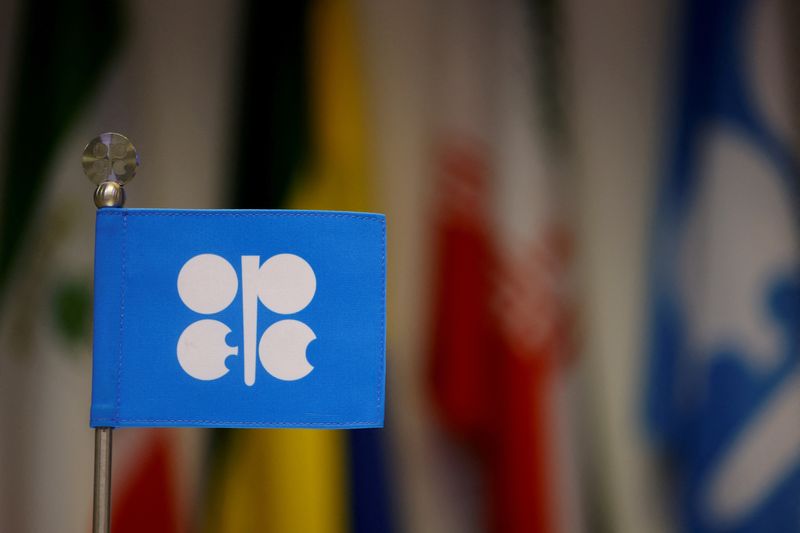OPEC+ wary of renewed US oil output rise under Trump, sources say
By Anna Hirtenstein and Alex Lawler
LONDON (Reuters) - OPEC+ is wary of a renewed rise in U.S. oil output when Donald Trump returns to the White House, delegates from the group said, because more U.S. oil would further erode OPEC+ market share and hamper the producer group's efforts to support prices.
OPEC+ pumps about half of the world's oil and earlier this month delayed a plan to raise output until April. The group extended some of its supply cuts until the end of 2026 due to weak demand and booming production from the U.S. and some other non-OPEC+ producers.
OPEC has a history of under-estimating U.S. output gains going back to the start of the shale oil boom, which has seen the United States become the world's top oil producer. The United States now pumps a fifth of world supply.
Some delegates are more bullish now on U.S. oil and say the reason behind this is Trump. Following an election centred on the economy and the cost of living, Trump's transition team put together a wide-ranging package to deregulate the energy sector.
"I think a return of Trump is good news for the oil industry, with possibly less stringent environmental policies," a delegate from a U.S. ally OPEC+ member said.
"But we may see higher production in the United States, which is not good for us."
Vienna-based OPEC didn't respond to a request for comment.
A further rise in U.S. output would hinder plans by the Organization of the Petroleum Exporting Countries and allies such as Russia to start raising output from April 2025 without risking a drop in prices. A drop in prices would hurt OPEC+ countries who rely on oil revenues.
The U.S. president-elect wants to raise output but for different reasons, having campaigned on promises to bring down energy prices and inflation.
"This is a potentially difficult dynamic for both sides," said Richard Bronze, head of geopolitics at Energy Aspects. "OPEC+ has faced a big challenge from rising U.S. production, which has reduced the group's influence."
U.S. OUTPUT TO RISE IN 2025
OPEC+ is holding back 5.85 million barrels per day of output capacity after a series of cuts since 2022. In the 2022-2024 period, total U.S. oil output has risen 11% to 21.6 million bpd according to OPEC's own figures.
Only 11 years ago, the United States pumped about 10 million bpd. OPEC+'s output is equal to 48% of world supply, the lowest since it was formed in 2016 with a market share of over 55%, according to Reuters calculations based on International Energy Agency figures.
OPEC+ decisions to reduce output in 2016 and 2020 helped the U.S. shale industry and made it a leading exporter, said Igor Sechin, the head of Russia's largest oil producer Rosneft, earlier this month.
Another OPEC+ source said Trump's policies could support oil demand, which would benefit the producer group, although the prospect of higher U.S. oil supply is a concern.
"The main threat to OPEC+ is increasing U.S. oil production under Trump, reducing the country's dependence on imported oil and increasing exports," the source said.
In a report last week, OPEC predicted total U.S. supply will rise by 2.3% next year and also cut its forecast for global oil demand growth again.
"They are acknowledging that the U.S. will be taking a bigger piece of the pie," said Bjarne Schieldrop, chief commodities analyst at SEB.
The IEA sees U.S. output rising by 3.5% next year, faster than OPEC.
Some industry executives and analysts aren't convinced that U.S. supply could increase substantially under Trump. Shale producers are focused on their economics, known as capital discipline, and are expected to only increase output if it will be profitable, according to the head of Exxon (NYSE:XOM )'s upstream division.
This scenario becomes less likely if prices drop. New oilfields take years to develop, so Trump's pledges for permits to drill in new places aren't likely to yield new barrels any time soon.
"The U.S. has no spare capacity," said Bob McNally, president at Rapidan Energy Group and former White House official. "How much the U.S. will drill depends more on decisions made in Vienna than in Washington."
Source: Investing.com
